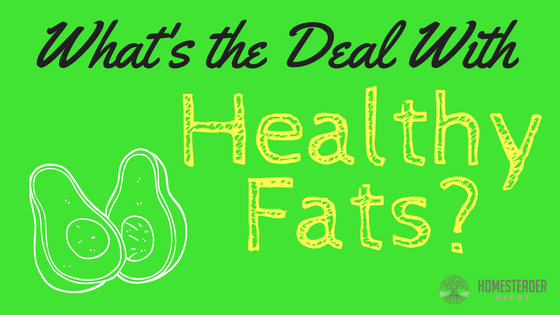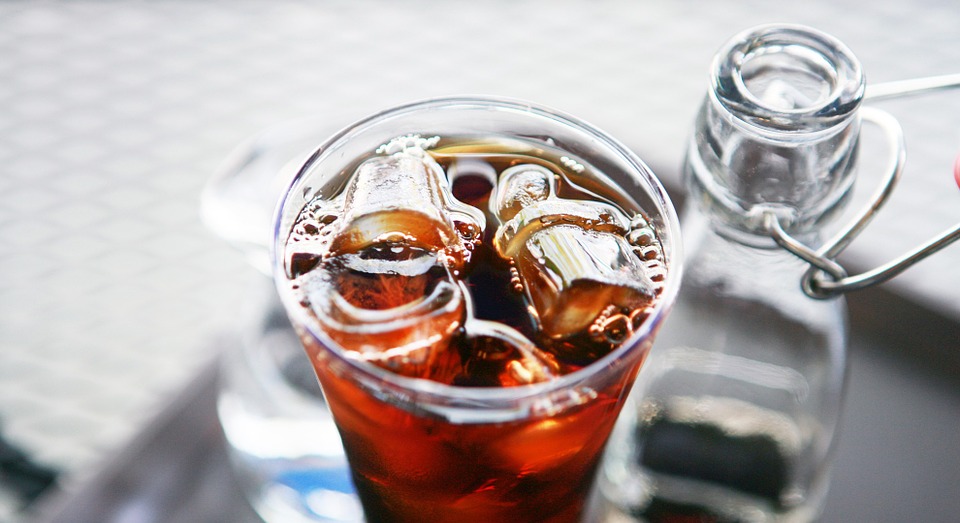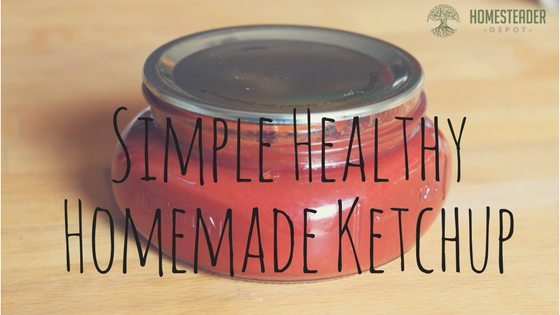
You’ve probably heard a lot of buzz over the last few years concerning “healthy fats”. However, mainstream diet wisdom has for years been that reducing fat intake is the best way to lose weight and stay healthy.
So what is it, is fat good or not?
I think part of the confusion comes from a misunderstanding and misuse of the word “fat”. Fat simply sounds like it will make you fat, so many people assume that “low-fat” would, naturally, make you less fat.
The problem isn’t in the macronutrient fat, the problem is in the type of fat, the recommendations for how much fat one should eat, and the way many low-fat foods are produced.
Types of Fat
First, let’s talk about the different types of fat. Saturated fats, the kind found in butter, whole milk, cream, and other full-fat dairy, was for years demonized as unhealthy and fattening. But recent research has revealed that saturated fats are actually quite healthy for you. Polyunsaturated fats, hydrogenated fats, and trans fats are the types of fat that are very unhealthy, and these should be avoided completely. Vegetable oil, margarine, non-dairy creamer, and fried foods are examples of food loaded with bad fat.
Whole Food is Always Best
When it comes to any kind of food, really, the closer to the whole, original source, the better. So the same stands for fats. Whole milk, butter, plain yogurt, oils like olive, coconut, flax, and avocado, tallow, etc., are all forms of minimally-processed, whole sources of good healthy fat.
Moderation is Key
Healthy fats should still be consumed in moderation. Here is the aspect of healthy fats you won’t often hear from the whole foods community: fat is still fattening. Fat is an important aspect of any diet, and there are diets that focus on consuming lots of healthy fats to lose weight. But these diets all reduce carbohydrate intake and limit calories. The key to understanding healthy fats is that these sources of fat are the best sources of fat to consume. Unhealthy fats should be avoided completely, rather than simply limited, because they increase cholesterol, as well as risk of diabetes, heart disease and cancer.
But healthy fats can still cause weight gain if consumed at too high a volume. Fat is, and always will be, highly caloric, so it’s not actually hard to meet your daily requirement for fat with a few servings of one of your favorite clean sources. Or, if you are eating a high-fat diet, you should be counting your calories and reducing carbohydrates. There are so many diets out there, and everyone has different health issues they might seek to confront with a diet change, so consult a nutritionist or naturopath to determine which diet is right for you.
There is, however, one consistency with all successful diets: they all limit intake of food. Moderation as well as whole, healthy ingredients, with lots of vegetables, is almost always the key to a healthy diet, no matter what your macronutrient percentages are or what foods you choose to avoid.
>> NEW “Purple Tea” Melts Away Over 100lbs <<
The Trouble With Low-Fat and Fat-Free
Low-fat diets were the normal recommendation for weight loss and improved health for several decades, but this is going out of fashion as scientists affirm that fat (healthy fat) is an important part of any diet, including a weight loss diet.
The thing is, not only is a low-fat diet lacking in necessary fatty acids that the body needs to burn fat as well as perform it’s normal functions, low-fat food products are really, really unhealthy. They are normally highly processed and replace fat with sugar. Sugar is highly caloric, and, unlike healthy fats, those calories are almost entirely empty.
For foods that aren’t packed with extra sugar, they are so processed they’re rendered entirely nutritionally deficient. For instance, you’ve probably heard for years that skim milk is bad for you, but it is really the process of removing the fat content from the milk that makes it bad for you. The natural fat content of milk is highly nutritious, yet without it, milk is mostly just lactose, or sugar. Doctors have also found a correlation between the consumption of skim milk and weight gain, mostly due to the fact that, without the healthy fats to fill you up, you’ll end up consuming more, and since it’s mostly just sugar at this point, you consume more empty calories as well.
Full-fat dairy has been consistently linked to, paradoxically, less obesity, heart disease, diabetes, high cholesterol, and stroke in countries such as France and Italy where cream, butter, and full-fat milk are a regular part of the diet. However, in the US, as fat consumption has plummeted over the last century, the obestiy epidemic rages on. It’s no wonder, when we’re replacing essential fat with sugar!
Diet sodas are entirely different. Free of sugar, they are replaced instead with horribly toxic chemical artificial sweeteners. Studies have shown that these sweeteners are actually highly addictive, so many people actually end up drinking far more diet soda than they ever would have regular (which is unhealthy enough on it’s own!). This can of course, ironically, cause more weight gain as well as a multitude of other health issues.
Healthy Non-Fats?
All this being said, it’s important to keep in mind that there are foods that are naturally low or non-fat that are perfectly healthy to consume: lean meats, fish, and legumes. These are a great part of any diet, and it’s important to get enough protein, which is perhaps now the most neglected macronutrient of our time. But athletes know, protein is essential!
The Bottom Line
It is clear that “factory fats” and over-produced low/non-fat foods are the problem, not fat or carbohydrates alone.
You will often hear people say “eat lots of healthy fats!” which can be slightly irresponsible. I think these people mean well, but it would be more helpful to say “eat only healthy fats!”, because eating too much fat is easy to do. We should be banishing unhealthy fats completely from our diet!
It’s up to you to find the diet that’s right for you, but don’t ever rule out the importance of choosing the best sources for fat in whatever diet that might be!
If you enjoyed this, you might also like….





